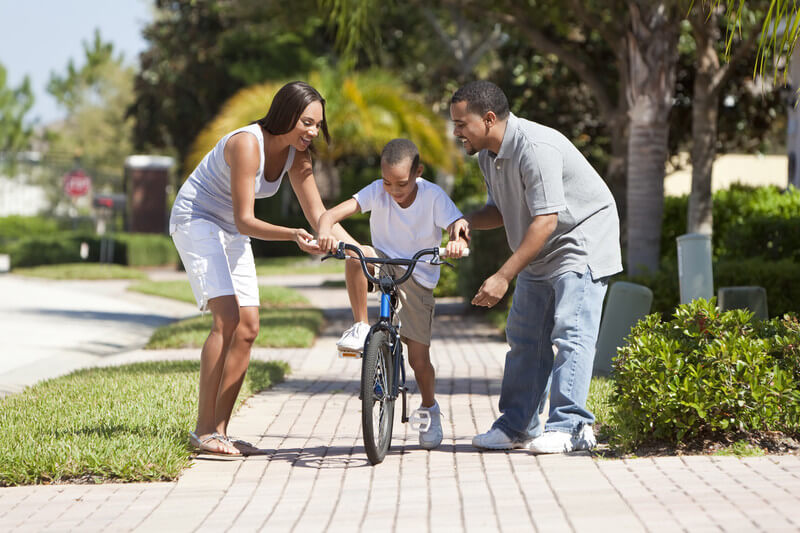Is your child resilient? Do you want your child to be more resilient?
A non-scientific definition: Resilience is the ability to recover or “bounce back” from loss, stress, or disappointment – setbacks that can cause someone to doubt his or her self-confidence and self-esteem, reduce their ability to perform normally, or even lead to depression.
As you well know, adults receive regular body-blows from life. But so do kids:
- After working hard, being cut from an athletic team
- A lower than expected grade on a big test, paper or report card
- Repeated failures
- Break-up with a best friend or boyfriend/girlfriend
- Serious illness or injury
- Separation or divorce
- Death in the family, including that of a pet
- Having to move, leaving old friends behind
- Being the victim of verbal abuse or physical bullying
An important first step: understanding that “resilience” comes from a combination of personal strengths:
Perseverance. This pattern has to do with the refusal to give up while there is still a reasonable chance of success. Non-resilient people tend to give up when the going gets tough. And it will; life is like that. Resilient individuals hang on in spite of repeated adversity.
Courage. This is the willingness to take risks. Non-resilient people back off and shut down when they feel threatened. Life itself is uncertain and risky. Resilient people do what has to be done anyway, even when the stakes are high.
Composure. This is the habit of being mentally tough – keeping emotions under control even during moments of high stress and pressure. When faced with crisis, danger or disaster, non-resilient people “lose it” or “choke.” Their emotions take over, rendering them ineffective. Resilient people keep on functioning, dealing with issues and solving problems.
Acceptance. This means calling on personal strength to acknowledge reality, no matter how grim it may be. Non-resilient people go into denial. Resilient people are able to deal with the world as it is because they face it head on.
Confidence. It helps to know your strengths and believe in your ability to deal with challenges.
Optimism. This pattern is not about focusing strictly on the positives of a situation – that would be a form of denial. True optimism has to do with acknowledging both the downsides and the upsides – in other words, a balanced, realistic view. Non-resilient people are so overwhelmed by adversity that they can no longer see the realistic upsides, advantages, and opportunities. Resilient people use their balanced view to see what’s possible, no matter how awful a situation is.
Second, understand that these behavior patterns are like skills: the more your child exercises them, the stronger they become, which in turn make the child more resilient. But the child has to do the work. You can’t do it for them or talk them into being more resilient.
So what can a parent do?
Set an example. Role model the strengths. Kids naturally admire their parents and want to be like them.
Talk about the strengths. The idea is to make a strength a real possibility in the child’s mind. When the time is right, describe one of the strengths, the benefit, and how it can become stronger every time the child exercises it.
Don’t be over-protective. Give your child opportunities to exercise the strengths. Play, friendships, learning: these are activities that can involve situations that require resilience.
Give positive feedback. When you notice your child exhibiting a strength such as perseverance, courage, composure, acceptance, confidence or optimism, let him or her know you noticed the behavior and express your pride.
Encourage. When you notice your child is struggling, express empathy, acknowledge the challenge and affirm your child’s capacity to be strong.
“Whatever we learn to do, we learn by actually doing it: men come to be builders, for instance, by building, and harp players by playing the harp. In the same way, by doing just acts, we come to be just; by doing self-controlled acts, we come to be self-controlled; and by doing brave acts, we become brave.” – Aristotle (384-322 B.C.)
Smarter kids are more resilient. My new book: How Your Teen Can Grow a Smarter Brain.
You can grow the bond with your child through better listening. Download the FREE ebook, Listening to Understand.


